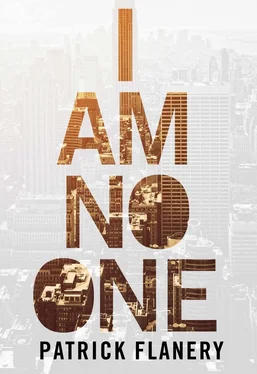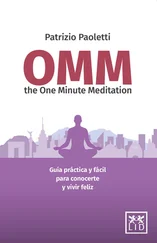The encounter with Rachel unsettled me, mostly because since returning to New York from Oxford there had been a number of such exchanges with strangers who assumed on first introductions that I was British, and on a few occasions some of the less astute strangers persisted, even after I had explained the situation and my personal history, convinced that I myself was somehow confused about my own nationality, that I was in fact not American, or that my parents must be British. Sometimes these exchanges would turn into confrontations; I would begin to lose my temper at a party or other social event, alcohol perhaps muddying the argument while also prolonging it, until I was finally forced to say something to the effect of, ‘Listen, I was born in the state of New York to parents who were born in the state of New York to grandparents who were born somewhere between Maine and Pennsylvania. I grew up in New York, I was a child in this state, I was a student here, I lived in America until I was in my late thirties, and then by the whims of a career in academia I happened to take a job in Britain and move there for a period of more than a decade. Some Americans are capable of living abroad and never losing their native accent. I am not one of them. Call me a chameleon or poseur or snob or whatever else you like, but I tried, perhaps unconsciously, perhaps intentionally at some points, to blend into British life because it became exhausting to be asked twice or three times what I meant when I said a word or phrase or whole sentence that was misunderstood as a direct result of my thoroughly American accent or vocabulary or some concatenation of the two, and so I made micro adjustments the better to be understood by the people who were, in a very real sense, my hosts. In making such adjustments I made myself sound foreign to you and people like you but I am no less American than I was when I moved to Britain all those years ago.’ And then, because I might have made the mistake of mentioning the year in which I moved to Oxford, a shadow would fall between me and the person who had misinterpreted my nationality to the point of offending me, and he or she would say something to the effect of, ‘Oh, did you leave before or after the attacks?’ and then I would have to say that the move occurred in the weeks following the attacks on New York and Washington, although this was merely a matter of coincidence. In a few cases one of these tin-eared interlocutors would look at me sharply and grumble, ‘If it had been me, I wouldn’t have deserted my country in that hour for the sake of a job,’ and, having made such a statement, the person would take their drink or canapé and flounce away, as if there could be no retort from me that would change their mind. It was dispiriting, and this succession of encounters, including the encounter with the English don at Exeter College that Rachel’s confusion recalled, all bled into my exchange with her that dark Monday afternoon. Conversations, perhaps especially ones involving some element of miscommunication or misapprehension that leads to a sense of conflict unfolding unexpectedly in the course of the exchange, are necessarily informed by the whole panoply of other remembered conversations about the same or similar subjects, conversations that devolved into a state of tension or open conflict. Sometimes that process of recall is triggered by nothing more than the physical stance of the person to whom one is talking, the way she cocks her head or uses a finger to draw her hair behind her shoulder, or by a word, a phrase, a tone of voice that suggests a prior exchange with a different person in a distant location. Then the catalog of past conversations begins to poison the present, so that, in this particular case, I was responding not only to Rachel’s confusion and stubbornness, but to the confusion and stubbornness, the rudeness and exclusiveness, of the Professor of English I had encountered at Exeter, and the Americans who have wanted to place me in the narrowest possible national category, who have seemed to think that they know my identity better than I do myself.
My walk home should have taken me directly across Washington Square Park, but instead, without making a conscious decision to do so, I skirted its northern and eastern perimeter, as if the vision of that young man passing my office earlier, his circling round and round again, acted as a repellent force, though as the autumn days grew shorter I had been finding it more difficult to brave the park after nightfall, despite it being well lit and, particularly in late afternoon and early evening, full of people walking to their homes or jobs or simply exercising their dogs. It did not seem to be the zone of criminality and licentiousness I remembered from the past, a park where one could scarcely walk ten feet without being offered drugs or noticing the invitation of some person’s gaze.
As I walked round the edge of the park, I felt a spasm of regret for the tone I had adopted with Rachel. Such truculence was not like me, and I began to compose a message to her in my mind, apologizing for the confusion while also explaining, in brief, the history behind my irritation with the subject, and then assuring her that it was not a big deal and finishing by asserting my sincere hope that I had not upset her. The more I thought about it the more I began to realize that the confusion and insistence by others that they knew better who I was than I did myself was only partly the cause of the intense irritation I was feeling. What was really irritating me was that I had taken the job at Oxford out of a sense of desperation since Columbia’s failure to grant me tenure seemed effectively to have ended my career in America at the time. After such a decision there is little one can do, nowhere one can go in America but down, to some lesser institution, perhaps even to a community college, or worse, to a high school, and faced with the prospect of becoming a high school History teacher to teenagers who cared nothing for the subject and would become ever more hostile to an aging teacher who, God only knows, might have developed a cancer the treatment for which his job’s poor medical insurance would not have begun to cover and instead of turning to the production of crystal meth, as in that unlikely television drama, I might have been moved to do something no less illegal like applying my linguistic and historical knowledge to treasonous ends, that is to say by turning spy, though as soon as I thought of this the more ridiculous it seemed since I have no access to government files or secrets, and my loyalty, though engaged and interrogative, a loyalty that marks its fidelity by the robustness of its critique, has never been in doubt. I would have been no one but a failed and failing high school History teacher with scant knowledge that any foreign government might wish to acquire. I am still in possession of nothing — no information, no secrets, no connections (at least I believe this is true) — that can possibly be of use to anyone other than myself, perhaps my heirs and a few of my students and colleagues. I know nothing that would or should make me a person of interest to the authorities on either side of whatever divisions now carve up our world.
Although I was exceptionally lucky to get the position at Oxford given what had happened at Columbia, moving there did not feel like a choice made freely, since the alternative — a life of poorly paid secondary school teaching or criminality of whatever stripe — was so horrific that I could do nothing but leave the country of my birth to find better work elsewhere. It was that which niggled, the resentment I felt for having been forced into a more complicated relationship with the idea of home.
In any case, I vowed to write out my apology to Rachel and send it the next day, then to put it from my mind since I will have no occasion to see her again until this coming spring.
Читать дальше












